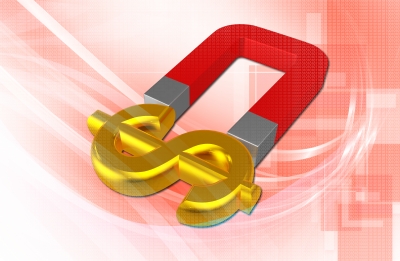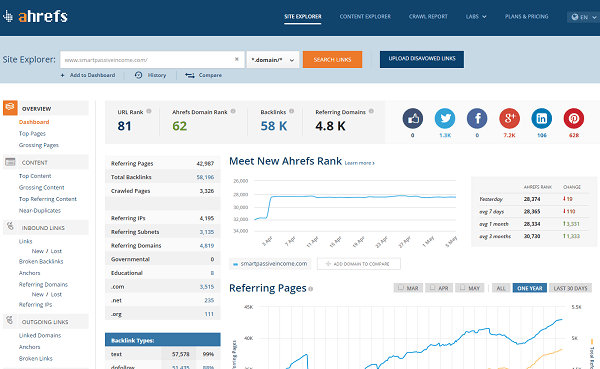Table of Contents
What is CDN?
A content delivery network (CDN) also referred to as distribution networks, is a group of servers in various points that provide web services to a heterogeneous population.
The basic idea that revolves around a CDN concerns activating location Points (Pop) that feed into the main server. With this technology, websites plug into the server where they handle and track traffic, enhance performance, manage user requests and provide a wonderful service experience.
Every time you buy products or services online, you use CDN. For huge companies like Amazon or Facebook, with similar impressive data centres, using e-commerce websites and social media is smooth and less cranky. As a result of the enormous data centres that big companies operate, they allow you to communicate effectively over thousands of mile, bringing content to the click of your fingers.
When you feel like purchasing new products on Amazon and provide great reviews about them, you are indirectly utilizing CDN; when you are scrolling through your social calendar for activities with friends and colleagues on Facebook, CDNs are making the algorithms practical. Together with the scattered servers and huge data capacities that these corporations boast of, content is closer to you more than ever, the question is what are you going to do with it?
Without using much power from the main server, the system of allocating and decentralizing function reduces bandwidth usage and the minutes before a page loads. When a page loads quickly, you handle user requests faster and more efficiently.

How Does CDN Work?
The servers that are closest in terms of location handle the request of a user. When a request is entered into the system, CDN crawls on the webpage and relays the information gathered to remote servers in different locations, storing the same information requested in a cache folder.
Similarly, when a request is punched into the network that is directly hosted by the servers, CDN performs a detour where the information from the server is channelled to a remote server closest to the request while opening the document from the cached file. In addition, CDN will furnish you with more information that is not saved in any cached file.
You can also identify the CDNs responsible for transmitting your requested data. To track this function and clearly show the active CDNs, look closely at the URL. When the address from the uniform resource locator is different from your query, you can clarify without doubt the remote servers that delivered your content.
Are CDNs the Same as Hosting Services?
A lot of website owners interchange CDNs for hosting services. The fact is that CDNs are far from being host platforms. Instead, they ensure smooth performance of web hosts, using cache and similar methods to manage bandwidth levels. While web hosts create a space for websites, CDNs optimize server processes where you enjoy consistent connection and quick access to online information with blazing speed.
When combined with a host server, you can work more efficiently. While your website is hosted on a host server, CDNs using proxies and sockets that disseminates data effectively. At the end of the day, your website users quickly see the information that they requested and you also save the cost of doing business.
What Are the Differences Between CDNs and Traditional Web Hosting?
With web hosting, you can host your website on any server of your choice. When you have a great web host, users can quickly check your content and services on the internet. The CDNs place in this equation is to ensure that your website is easy to reach without difficulties.
Traditional web hosting serves your content to the user. But when the servers are scattered, simply decentralized, your content will not reach users on time. And because you want to prevent this lag and wait times, CDNs proffer a good solution here. Retrieving your content quickly from other servers quickly and dishing it out to the delight of your end-users is a crucial function of CDNs. Invariably, when remote servers are close to requests or queries, it information stored on them loads faster and the user can use it immediately.
Web Hosting is carried out on a server while content delivery networks snatch information from various destinations simultaneously.
What Are the Benefits of CDN Server Hosting?

Using a CDN server host like key CDN attracts enough benefits that transcend traditional utility that web hosting creates. Responsive architecture and decentralization of servers, spread over remote and distant destination outweighs traditional-server hosting service.
As CDN server hosting remains more fool-proof using cache file system enabled on different servers, key CDN is a great tool that can help you achieve better server-side results. With the use of proxies and sockets, key CDN allows your content to be seen from anywhere in the world in a matter of seconds where you also save the cost of using bandwidth on a very poor server.
Main Benefits of a Content Delivery Network
- Performance: minimal loss of packet and reduced latency.
- Scalability: automatically scale up for traffic spikes
- SEO Improvement: contributes to Google SEO ranking factor for website
- Reliability: edge servers work together to retrieve your content.
- Lower Costs: Conserve bandwidth usage on the web host.
- Security: KeyCDN reduces the possibility of a DDoS security breach on servers. In essence, it helps to improve your site’s internet security and privacy.
The CPU utilization is augmented with Key CDN as resources are distributed to several hosts in the hardware, providing the best performance by balancing bandwidth and flattening peak times. Retrieval and the storage of content— text-based, images and text, and simultaneous exchange of data among others remain independent from other activities requiring the processing power of your computer.
This content delivery network has the ability to handle and sustain a million views of web pages, real-time multimedia content delivery and thousands of concurrent downloads without causing any major stress on computing resources. When you use keyCDNs, a huge benefit derived is that your content remains valid and robust on all remote servers.
How Does CDN Enhance Your Website Speed?
CDNs improve your webpage speed and enhance access to your content using less bandwidth in three ways.
- Distribute and save diverse data form like images, files, and concrete media extension for quick and future retrieval.
- Conserve bandwidth by distributing your content over decentralized server points instead of uploading them on a single central server.
- Managing traffic contingencies like holidays, a period of natural disasters and emergencies without affecting the network.
CDNs and hosting packages
Nowadays, hosting services are less regimented to a brand or company; there are hosting packages that cut across both worlds of traditional and CDNs. This is a good thing for users who want to create content that can quickly reach their target market. For example, some shared hosting packages boast of Cloudflare CDNs that replicates everything that a CDNs program will do.
Wrapping up
You accomplish a lot with little time with CDNs and your webpage experience is enhanced beyond server-side capabilities. Traditional host servers are here to stay and serve their dynamic purpose. In contrast, CDNs host services are far more advanced and can create a bigger difference for your business and website management. It allows you to be more effective beyond the boundaries of host servers where the process involved with retrieving information is quite overwhelming.
Traditional host server does a lot of things for parsing your website data, CDNs reduces the possibility of retrieving information at the expense of your bandwidth. When your webpage loads on time, you increase your site ranking chances and accessibility. Your data is safe and cannot be compromised easily in the event of cyberattacks, network glitches and traffic spikes.

























Erik,
I could see more start-ups struggling to be aware of the technical terms in hosting like CDN, SSL, SSD servers, etc. Hope this article would be more helpful. Thanks for clearly differentiating the web hosting & CDN.
Hello Erik,
CDN is the backbone of internet in terms of content delivery. In my opinion – they are designed to solve the latency issue, the delay in loading of a web page due to a number of factors such as most prevalent one being the physical distance between your website and the hosting server.
This distance is shortened by the CDN which improves your site’s speed, performance, reliability and security.
CDN management really reduces the time taken by web hosting server to process, receive and deliver the content.
This is really best guide on this topic and it will going to help several people to understand things in deep. Eventually, thanks for exploring your creativity with us.
With best wishes,
Amar Kumar